Latest News
Direct invasion of Afghanistan by Pakistan: Spanta
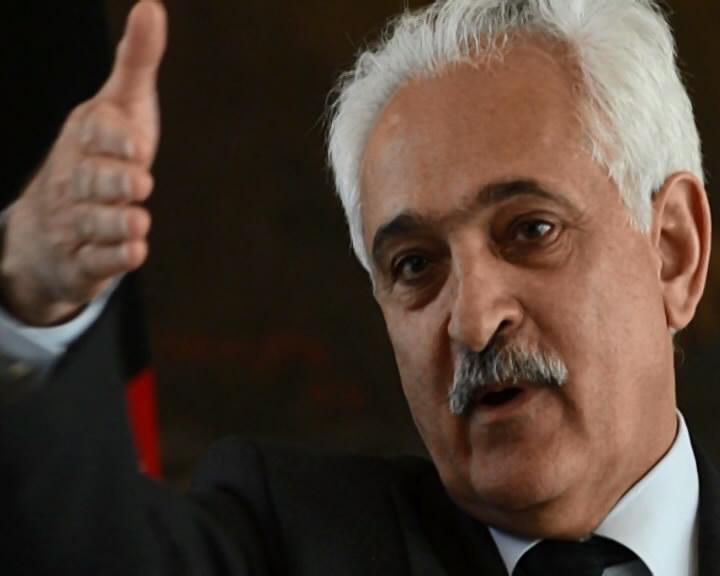
Dr. Rangin Dad Far Spanta, former head of Afghanistan National Security Directorate (NDS) has said that by using Afghanistan, Pakistan’s claim based on India’s “Proxy War” against this country is silly; many take advantages of the use of this word, both overt and covert. There is no problem with the way they are taking advantage by the use of this word. However, the problem is their intensions.
Afghanistan former head of NDS revealed Haqqani Network’s direct contact to Paksitani ISI, saying Haqqani Network takes order from Pakistan’s ISI for terrorist activities.
“The problems include elimination of the border between friends and foes, locating victims and criminals in one line and undermining the resistance of Afghan people against the invasion of Pakistan from the first half of 1990s until now. Another biggest backlash would be: Afghans’ fight for freedom against Pakistan is lost and relegated by intelligence war between India and Pakistan inside Afghanistan. The army of Afghanistan is reduced to be pro-India. Afghan national army is currently busy in a fierce fight against the Taliban. The Taliban are pro-Pakistan. Nevertheless, by the use of word proxies, realities are depicted but in opposite direction.” Spanta said.
Sapanta said, the spy agency of Pakistan speaks of India’s proxy war in Afghanistan against Pakistan. I prefer to point out to a number of facts here:
Pakistan has claimed several times that India has 14 consulates in Afghanistan. This claim is totally baseless.
India has four consulates in Afghanistan—the same like Iran and Pakistan. The consulate offices were established ahead of 2002. Now, if ISI’s henchmen inside Afghanistan want the Afghan government to reject the consulates, it is up to them, but the freedom fighters of this country will never give this right to Pakistan to take control of Afghanistan’s foreign policy and press Kabul to tell India to cease its consulates in the country.
They also claim that India helps Tehreek-e-Taliban Pakistan (TTP) fighters in Kunar province. They allege the former government of Afghanistan trained and sheltered Pakistani Taliban in collusion with India. This claim is also unfounded. Kunar province had never been in control of Afghan security forces until mid-2014. The US troops had more than 60 small and big military bases in the province. In presence of ISAF troops, neither Afghanistan nor India could establish sanctuaries in the areas or could train the militants there.
Pakistan claims that India helps the Baluchistan freedom movement via Afghanistan. This allegation of Pakistan is also far from reality. The fact is that after the martyrdom of Nawab Akbar Bugti, a Baluch nationalist leader, in 2006, his family members and relatives migrated to Afghanistan, and the then Afghan government gave them refuge purely on humanitarian grounds because then administration informed the UN office and also the embassy of Pakistan in Kabul.
After many years of supporting militancy in the region, the Pakistani government now wants to wash its hands of the problem by claiming that its origins lie in Afghanistan. Under the National Action Plan initiated after the Peshawar school attack, Pakistan projects to expel many Afghan refugees, with little regard for the costs of reintegrating them that the Afghan government will have to bear or the risk that some extremists will enter Afghanistan among the refugees.
This comes as Afghanistan National Unity Government Leaders are trying to persuade Pakistan to cooperate in Peace process with Afghanistan.
Simultaneously, Pakistan has also promised to bring Taliban leaders to the negotiation table.

Latest News
German firm keen to invest in Afghanistan’s mining sector
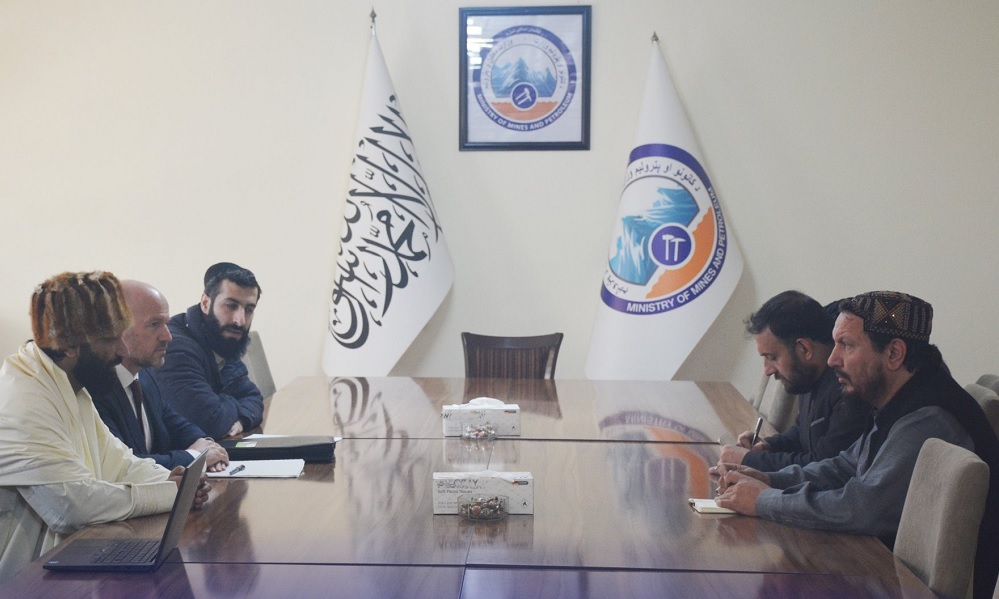
The German company Green International has expressed interest in investing in Afghanistan’s rich mineral resources, following a meeting with officials from the Ministry of Mines and Petroleum.
The discussion focused on opportunities in oil and gas extraction and processing, as well as solid and metallic mineral projects. Representatives of Green International highlighted their expertise and capacity to contribute to Afghanistan’s mining sector, aiming to attract further reputable international investors.
Meraj Mohammad Meraj, chief of staff of the Minister of Mines and Petroleum, welcomed the company’s interest, saying: “Afghanistan is a mineral-rich country. The Ministry of Mines and Petroleum encourages investment from all nations and will provide support and facilities to facilitate foreign investment.”
This engagement reflects the Afghan government’s ongoing efforts to strengthen international partnerships and promote foreign investment, crucial for economic growth and development in the country’s natural resource sector.
Latest News
CSTO official warns Afghanistan-based militants pose major threat to regional stability
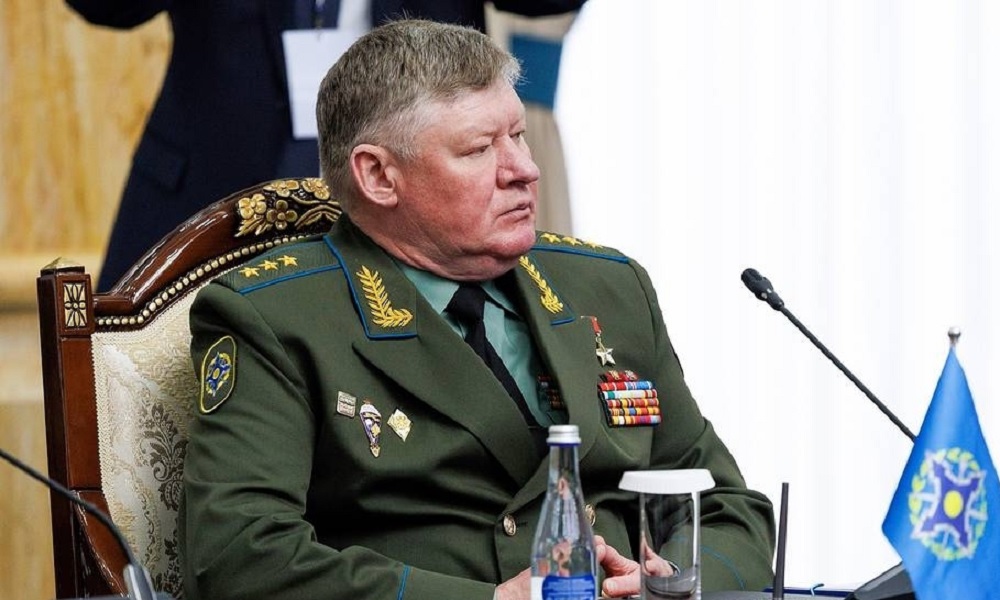
Andrey Serdyukov, Chief of the Joint Staff of the Collective Security Treaty Organization, has warned that militant groups based in Afghanistan pose a significant threat to regional security, with the potential to export terrorism to neighboring countries.
“The proliferation of radical ideologies and drug trafficking continues to pose serious challenges,” Serdyukov said during a news briefing.
He also highlighted that Western nations are actively seeking to expand their influence in the South Caucasus, a region he described as volatile due to unresolved conflicts and emerging geopolitical tensions. “This situation is particularly concerning, largely driven by Western efforts to establish a stronger presence in the South Caucasus,” he added.
Concluding his assessment, Serdyukov noted that the overall security situation across the CSTO’s area of responsibility remains tense and unpredictable. “As international relations continue to deteriorate, the risk of conflict is likely to grow,” he warned.
Regional countries have repeatedly expressed concern over militant threats originating from Afghanistan. The Islamic Emirate of Afghanistan, however, has dismissed such claims, asserting that it will not allow Afghan territory to be used against any other nation.
Latest News
Pakistan says it has not closed door on diplomacy, nor seeking war with Afghanistan

Amid tensions between Pakistan and Afghanistan, Islamabad on Thursday renewed its call for the Islamic Emirate to take decisive action against militant groups operating from Afghan territory.
Speaking at his weekly press briefing in Islamabad, Foreign Office spokesperson Tahir Andrabi stressed that Pakistan is neither closing the door on diplomacy nor opening the door to conflict between the two neighbouring nations.
“Diplomacy continues even in wars. Diplomacy continues even during skirmishes,” he remarked, adding that Pakistan wishes peace and prosperity for “our Afghan brothers and sisters.”
Referring to a recent report by the United Nations Security Council, Andrabi said the document strongly reinforces Pakistan’s longstanding concerns regarding the Tehreek-e-Taliban Pakistan and the situation in Afghanistan.
“The report confirms Pakistan’s position that the TTP’s resurgence is linked to the post-2021 takeover by the Afghan interim government. This is an important document, and we are following up with the relevant UN bodies, Security Council members, and other international stakeholders,” he said.
The Islamic Emirate of Afghanistan has repeatedly denied the presence of foreign militant groups in Afghanistan, arguing that it cannot be held responsible for Pakistan’s internal security challenges.
-

 Sport4 days ago
Sport4 days agoChampions League Elite action continues as qualification race tightens
-

 International Sports5 days ago
International Sports5 days agoWinter Olympics gain momentum as medal table takes shape
-

 International Sports3 days ago
International Sports3 days agoIPL 2026: Franchise sales gather pace as global investors circle teams
-
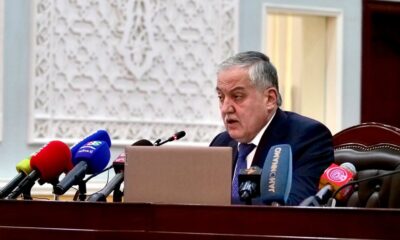
 Latest News5 days ago
Latest News5 days agoTajik foreign minister urges international community to help Afghanistan address its challenges
-

 Sport4 days ago
Sport4 days agoEarly medal leaders emerge as Winter Olympics continue in Italy
-
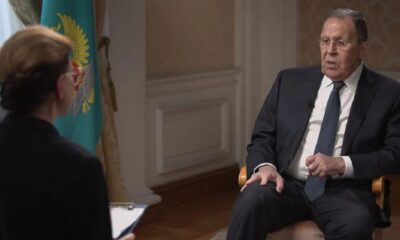
 Latest News4 days ago
Latest News4 days agoTerrorist activities observed along Afghanistan borders, says Lavrov
-

 World4 days ago
World4 days agoHong Kong tycoon Jimmy Lai sentenced to 20 years in jail in national security trial
-
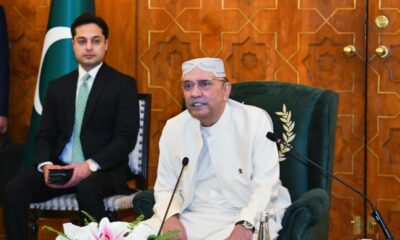
 Latest News4 days ago
Latest News4 days agoPakistan president claims situation in Afghanistan is ‘similar to or worse than pre-9/11’’

![SPANTA FINAL _23_03_2015_PASHTO_SOT.avi_snapshot_00.03_[2015.03.23_19.23.41]](https://ariananews.af/wp-content/uploads/2015/03/SPANTA-FINAL-_23_03_2015_PASHTO_SOT.avi_snapshot_00.03_2015.03.23_19.23.41-300x240.jpg)















